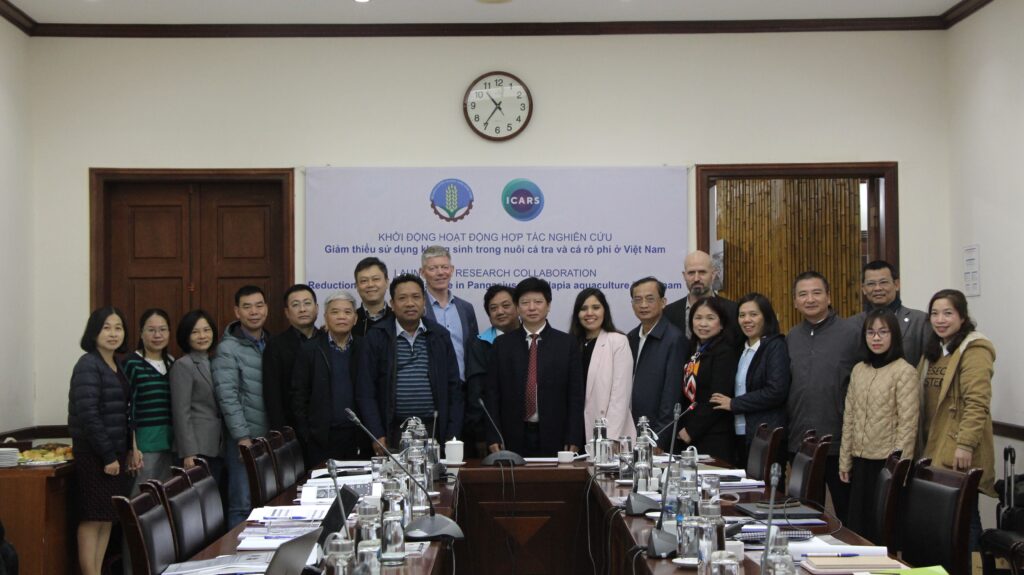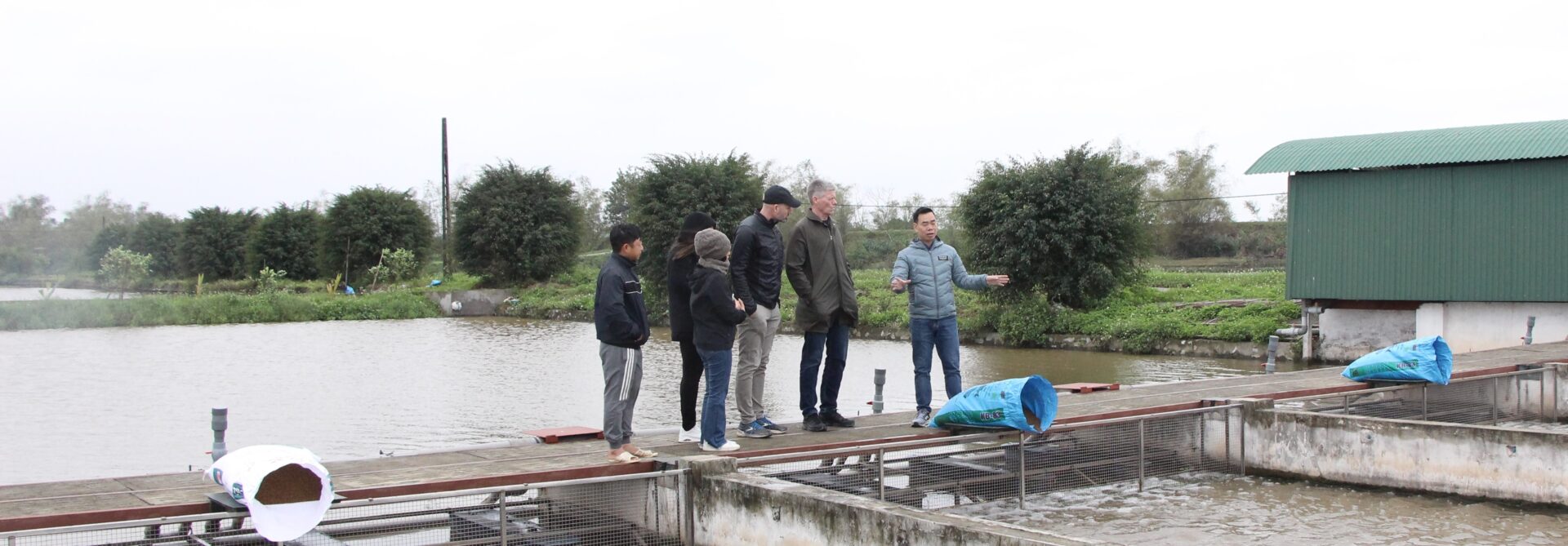Last February, Dr Anders Dalsgaard, Dr Mabel de Leo, and Dr Mads Martinus visited Vietnam to initiate a project addressing the use of antimicrobials (AMU) in aquaculture farms. More specifically, this project aims to enhance the sustainable development of Pangasius and Tilapia aquaculture in Vietnam, focusing on reducing AMU through improved production systems and disease prevention strategies. The Research Institute for Aquaculture No1 and No2 (RIA1 and RIA2) and Can Tho University will lead the project, with the support of ICARS, alongside partners within the private sector, namely producers of Tilapia and Pangasius.
During their visit, the ICARS team held several meetings among others with the Vice Minister of the Ministry of Agriculture and Rural Development (MARD), Dr. Phung Duc Tien, to initiate the project and form an advisory committee comprised of experts within the private and public sectors. This committee will ensure comprehensive stakeholder engagement from the project’s initial phase and throughout its implementation.

Challenges in Vietnam’s Aquaculture Farms
In Vietnam, Pangasius and Tilapia fish species are vital for both domestic consumption and export. However, Pangasius and Tilapia farms are facing significant losses due to a few major bacterial diseases such as Bacillary Necrosis of Pangasius (BNP), Motile Aeromonas Septicemia (MAS), and S. agalactiae infections. Farmers routinely prepare and administer medicated feed to treat diseases typically unsupervised by veterinarians. That leads to antimicrobial resistance (AMR), inefficacy of treatments, and potential food safety and environmental hazards.
The Project’s Interventions and Expected Outcomes
The project has a multi-faceted approach. It includes assessing current AMU and antimicrobial resistant bacterial pathogens, implementing vaccination against common bacterial pathogens in Pangasius, and testing in-pond raceway systems (IPRS) in Tilapia culture.
These interventions intend to reduce bacterial disease outbreaks, diminish the reliance on antimicrobials, and ultimately foster a more responsible and efficient aquaculture sector through enhanced regulatory policies.
ICARS is thrilled to expand its collaboration with an increasing number of LMICs and co-develop context-specific solutions to the intersectoral challenges AMR poses.

